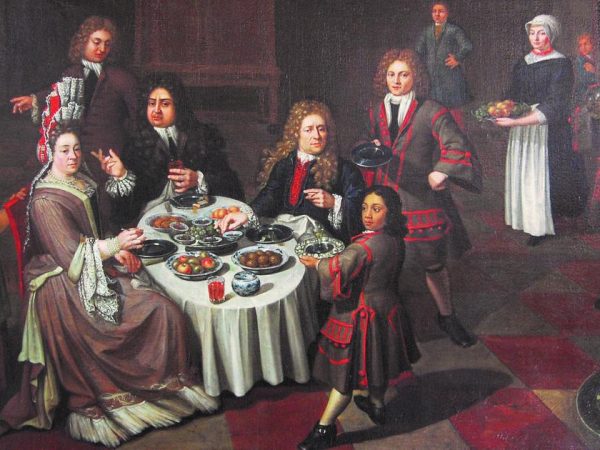Dutch Swear Phrases: 10 Powerful Insults to Master Like a Native

The Dutch language is rich, expressive, and occasionally colorful when it comes to swearing. If you’re learning Dutch and want to get to grips with the local lingo, understanding swear phrases can be both amusing and eye-opening. Swear words often reflect a country’s culture and history, and Dutch swear phrases are no different—they can be sharp, witty, and often focus on diseases or animals. In this article, we’ll explore 10 powerful Dutch swear phrases that will help you sound more like a native (though we recommend using them sparingly!).
Krijg de Kanker” – The Most Controversial of All
In Dutch, the phrase “Krijg de kanker” translates to “Get cancer.” This is one of the most severe Dutch swear phrases you could use, and it’s considered extremely offensive. The Dutch have a peculiar relationship with diseases in their curses, often wishing illnesses on others as a form of insult. While this might sound shocking to non-natives, it’s part of a historical context in which disease was rampant. Despite its common use in moments of extreme anger, it’s advisable to avoid using this phrase as it can cause deep offense.
Godverdomme” – A Blasphemous Curse
One of the most commonly used Dutch swear phrases is “Godverdomme,” which translates to “God damn it.” This curse is widely used across the Netherlands and is as versatile as the English equivalent. Dutch people often combine it with other words to intensify their frustration. Despite its blasphemous nature, “Godverdomme” is considered less harsh than disease-related curses, making it a common venting tool in everyday Dutch life.
Klote” – The Everyday Annoyance Word
“Klote” is a milder Dutch swear phrase that roughly translates to “balls” or “testicles.” However, it is mostly used to describe situations that are frustrating or annoying. For example, if something goes wrong, a Dutch person might exclaim “Klote!” Similar to saying “Damn!” in English, it’s a casual but crude way to express annoyance or disappointment without being overly offensive.
Teringlijer” – A Blast from the Past
“Teringlijer” literally means “tuberculosis sufferer,” harking back to the days when tuberculosis (known as “tering” in Dutch) was widespread. Like many Dutch swear phrases, it has its roots in diseases, which were a common source of fear. Although tuberculosis is no longer a pressing threat, the curse remains in the language as a powerful insult. It’s used to describe someone you find utterly detestable, much like calling someone a “bastard” in English.
Eikel” – The Acorn-Based Insult
One of the tamer Dutch swear phrases is “Eikel,” which translates to “acorn” but is used to call someone a “jerk” or “idiot.” It’s a funny yet cutting insult because of its association with something small and insignificant. This curse is not nearly as harsh as others on this list, making it a more playful insult among friends or when you’re just mildly irritated by someone’s actions.
Klootzak” – A Universal Favorite
“Klootzak” is a widely used insult that translates to “scrotum” or “ball sack.” This is similar to the English insult “asshole” and can be used to describe someone who is particularly unpleasant. Like other Dutch swear phrases that revolve around male genitalia, “Klootzak” has found its place in the daily vernacular of Dutch speakers and is often thrown around in heated moments.
Lul” – An Insult You’ll Hear Often
“Lul” is the Dutch equivalent of calling someone a “dick.” It’s short, simple, and highly effective in a wide range of scenarios. This is one of the most common Dutch swear phrases and is often used in arguments, road rage, or when someone behaves foolishly. Its bluntness makes it a go-to insult, especially for those who want to keep things sharp and direct.
Hoerenzoon” – The Offensive Ancestry Curse
“Hoerenzoon” translates to “son of a whore,” and much like the English phrase, it’s considered a grave insult in Dutch culture. This phrase carries a strong level of disrespect and is used to deeply offend someone’s family. It’s one of the more serious Dutch swear phrases and should only be used in extreme situations as it can provoke intense anger.
Kakkerlak” – Calling Someone a Cockroach
“Kakkerlak” means “cockroach” in Dutch and is a unique, animal-based insult. While not as harsh as some of the disease-related Dutch swear phrases, it’s still a stinging term used to describe someone who is deemed dirty, sneaky, or repulsive. The imagery of a cockroach is enough to make this insult effective when you want to express your disdain without going overboard.
Sodemieter Op” – A Command to Get Lost
“Sodemieter op” is a less offensive but still powerful Dutch swear phrase that means “Get lost!” or “Go to hell!” It’s an excellent way to tell someone to leave you alone without resorting to more explicit insults. The term “Sodemieter” has unclear origins, but it’s thought to have connections to the word for “sodomite,” making it historically charged. Nowadays, it’s used in a more general sense to tell someone to back off.
Conclusion
Dutch swear phrases are an integral part of the language, reflecting centuries of history, cultural shifts, and societal fears. While many of these curses are rooted in diseases and religion, they’ve evolved into everyday language tools for expressing anger, frustration, or even humor. However, be careful when using these phrases—while some might sound amusing, others carry a heavy weight of offense. Use them sparingly and contextually if you want to master the art of Dutch swearing like a native.
FAQs
Q1. Are Dutch swear phrases common in everyday conversation?
Yes, Dutch swear phrases are quite common in casual conversation, especially among younger generations or in informal settings. However, their use varies depending on the context, and some phrases are much more offensive than others.
Q2. Why are diseases used in these phrases?
The use of diseases in these phrases dates back to periods when illnesses like tuberculosis and cholera were rampant and feared. These curses have persisted in the language as a way to wish harm or express extreme anger.
Q3. Is it okay for non-natives to use these phrases?
While it’s important to understand the language and culture, using these phrases as a non-native can be risky. They may carry more offense than you intend, so it’s best to avoid using them unless you’re fully aware of their impact.
Q4. What’s the mildest phrase I can use?
“Eikel” and “Klote” are considered milder phrases. They are commonly used to express frustration or annoyance without being deeply offensive.
Q5. How can I learn to use these phrases appropriately?
The best way to learn how to use these phrases appropriately is to immerse yourself in the culture and observe how locals use them. Pay attention to the context and setting in which these phrases are used, and practice caution when attempting to use them yourself.
Also read: Gourmetten for Beginners: 10 Simple Steps to Culinary Success











